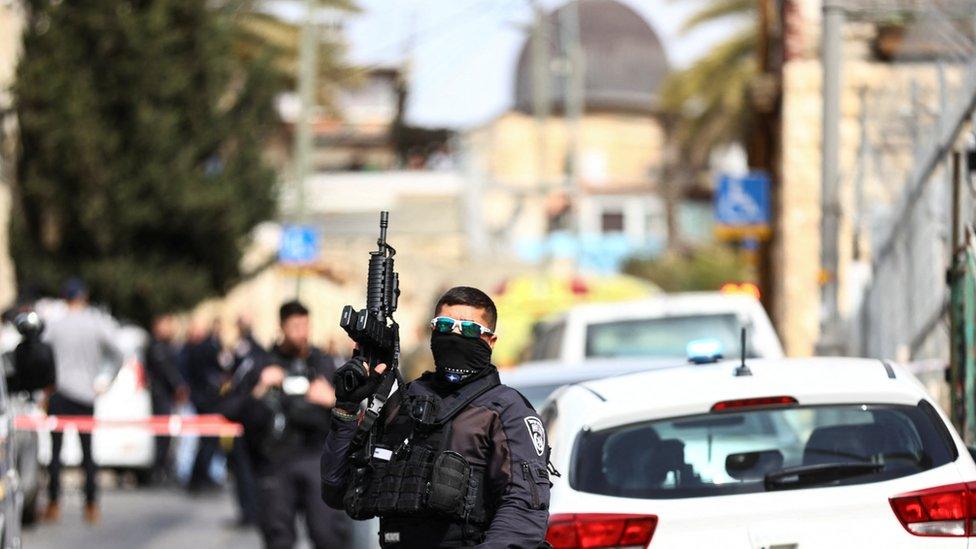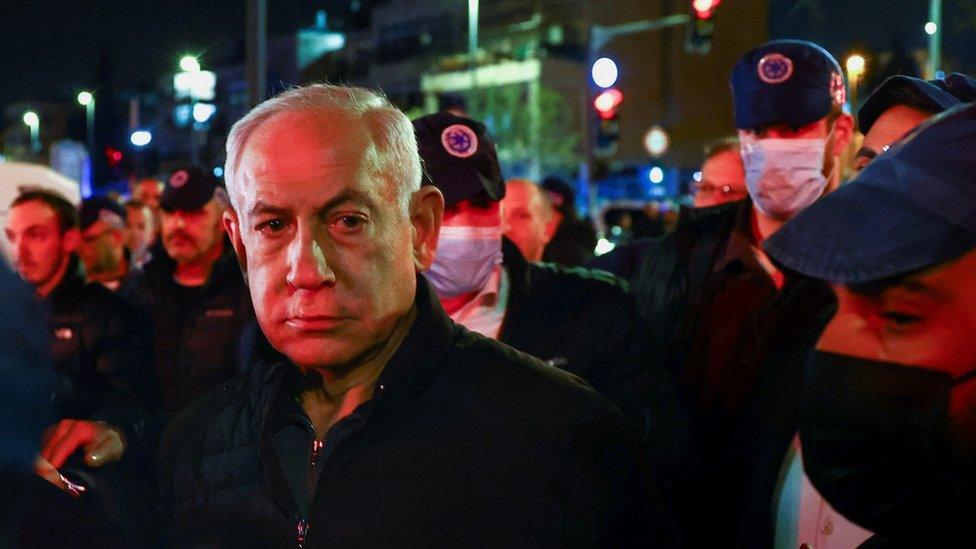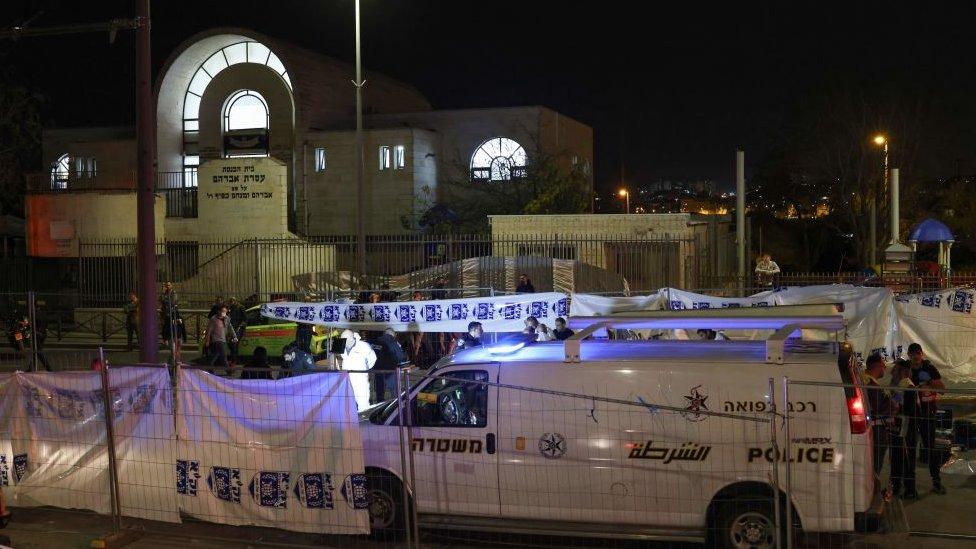Jerusalem synagogue shooting: Israel arrests 42 after deadly attack
- Published

In the aftermath of two attacks, Israeli military are boosting their forces in the occupied West Bank
Israeli police have arrested 42 people in connection with a deadly shooting at a synagogue in East Jerusalem on Friday.
Seven people were killed, and at least three more injured, in the deadliest attack of its kind in years.
Two people were also injured on Saturday in a separate attack outside the Old City.
Israeli police said the gunman in Saturday's attack was a 13-year-old boy.
They said he had been "neutralised", but did not give further details.
The attack took place in the Silwan neighbourhood, just outside Jerusalem's Old City. The injured pair were a father and son who were in a "moderate to serious condition", police added.
In response to the two attacks, authorities have positioned officers from a counter-terrorism unit "permanently" in the Jerusalem area to "promptly respond to exceptional events whenever necessary".
The man who attacked the synagogue on Friday was identified by local media as a Palestinian from East Jerusalem, who police described as a "terrorist".
Speaking at the scene of the attack on Friday, Israeli police commissioner Kobi Shabtai called it "one of the worst attacks we have encountered in recent years".
Israeli worshippers had gathered for prayers at the start of the Jewish Sabbath in a synagogue in the city's Neve Yaakov neighbourhood and were leaving when the gunman opened fire, at about 20:15 local time (18:15 GMT).
Police said that officers then shot him dead.
Palestinian militant groups praised the attack, but did not say one of their members was responsible.
Tensions have been high since nine Palestinians - both militants and civilians - were killed during an Israeli military raid in Jenin in the occupied West Bank on Thursday.
This was followed by rocket fire into Israel from Gaza, which Israel responded to with air strikes.

Israeli Prime Minister Benjamin Netanyahu visited the scene of the attack on Friday
The synagogue shooting happened on Holocaust Memorial Day, which commemorates the six million Jews and other victims who were killed in the Holocaust by the Nazi regime in Germany.
British Foreign Secretary James Cleverly wrote on Twitter: "To attack worshippers at a synagogue on Holocaust Memorial Day, and during Shabbat, is horrific. We stand with our Israeli friends,"
President Joe Biden talked to Israeli Prime Minister Benjamin Netanyahu and offered all "appropriate means of support", the White House said.
Shortly after the incident, Mr Netanyahu visited the site, as did the controversial far-right National Security Minister, Itamar Ben-Gvir.
A spokesperson for the Israeli military said on Saturday that they were boosting their forces in the occupied West Bank.
Mr Ben-Gvir promised to bring safety back to Israel's streets but there is rising anger that he has not yet done so, says the BBC's Yolande Knell in Jerusalem.

Israeli emergency service personnel and security forces attended the scene of Friday's shooting
United Nations Secretary-General Antonio Guterres was "deeply worried about the current escalation of violence in Israel and the occupied Palestinian territory", a spokesperson said.
"This is the moment to exercise utmost restraint," said Stephane Dujarric.
Israel has occupied East Jerusalem since the 1967 Middle East war and considers the entire city its capital, though this is not recognised by the vast majority of the international community.
Palestinians claim East Jerusalem as the future capital of a hoped-for independent state.

Are you affected by the issues discussed here? Share your experiences by emailing haveyoursay@bbc.co.uk, external.
Please include a contact number if you are willing to speak to a BBC journalist. You can also get in touch in the following ways:
WhatsApp: +44 7756 165803
Tweet: @BBC_HaveYourSay, external
Please read our terms & conditions and privacy policy
If you are reading this page and can't see the form you will need to visit the mobile version of the BBC website to submit your question or comment or you can email us at HaveYourSay@bbc.co.uk, external. Please include your name, age and location with any submission.
